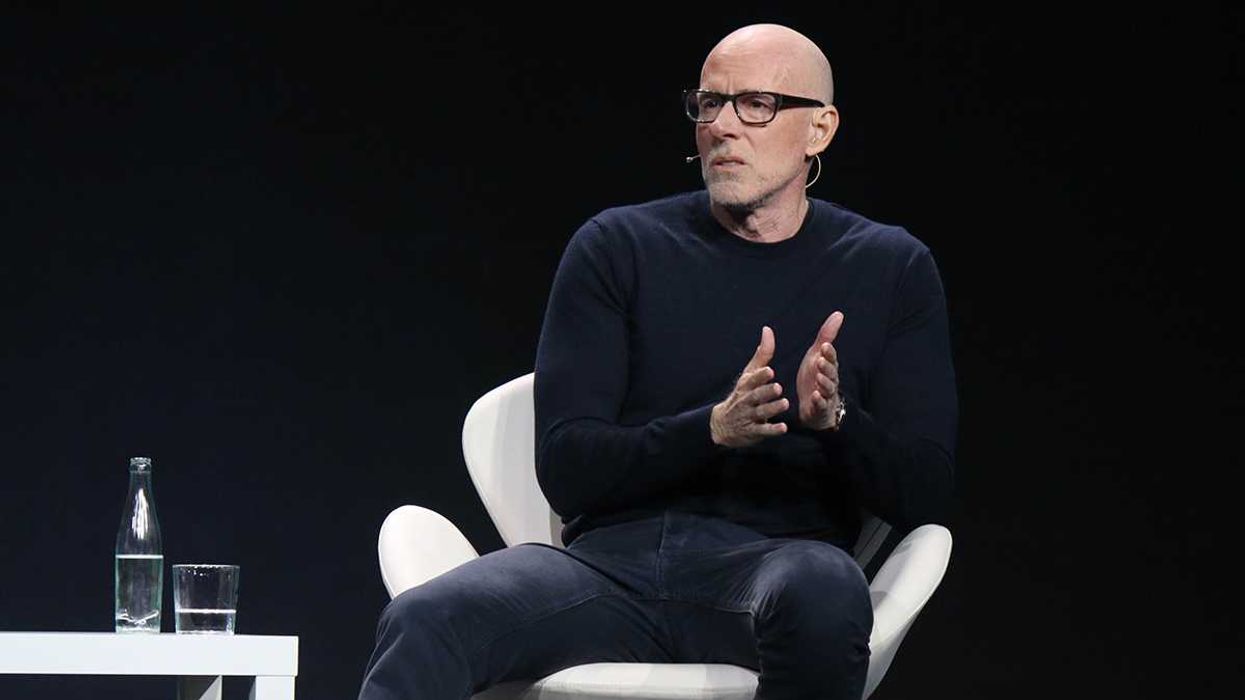Barack Obama leaves office in January, and I’ve been struggling with how to say goodbye. Many voted for him because of his politics. But it’s his coolness that I’ve come to appreciate as he rides out his final months. No, not the March Madnessbracket playing, Jay Z dropping “cool” you're thinking of. I'm talking about calm, even-keel pragmatism, a sensible, rational optimism that will soon be lost. In an election cycle rife with caricature, not character, where rage and hyperbole are cheap stand-ins for power, Obama's coolness, I now realize, is complex, with an impact too easily underestimated.
After soaring to victory on the most broadly inspiring campaign in recent memory, one of the great ironies of Obama’s presidency has been how often I found him sort of boring—a point the president, who was once rumored to enjoy a midnight snack of seven (count ’em) almonds, surely wouldn’t contest. This is the Obama who famously made few friends in the Senate, the Obama who sports dad jeans, the cat-like figure who just doesn’t care if you think he’s aloof or self-absorbed or disinclined toward flattery. It’s all of a piece with his no-drama ethos, from his warm and bythe-book family life to his deadpan “don’t do stupid stuff” foreign policy doctrine.
But consider the impact of that stance at some crucial moments. Handed the Nobel Peace Prize in 2009 by an overzealous awards committee, Obama cast it as “an affirmation of American leadership,” not as proof of his demigod status. In that pivotal moment, a person with less poise wouldn’t have brought his ballooning stature back down to earth. After the collapse of the Arab Spring soured his assured address in Cairo, Obama wisely shifted toward steely understatement, the proper mood for his late-night announcement in 2011 that we’d finally gotten Osama bin Laden.
At home, controversially, he embraced a paradoxically hands-off approach to the landmark bill that informally bears his name: Obamacare. Despite bipartisan irritation, the reserve affirmed the key principle of a free country: No matter how shortsighted Congress may be with wording or implementation, the legislature writes the laws. As humorous as the man could be, he found access to presidential zen by compartmentalizing policy and levity. While Ronald Reagan showed grace under pressure by cracking jokes in the gravest moments (“If I had this much attention in Hollywood, I’d have stayed there,” he wrote medical staff after his attempted assassination), Obama did almost the reverse— a fascinatingly effective twist in his effort to become the Democrats’ own Gipper.
On rare occasions, however, he let his guard slip. The guy whom Keegan-Michael Key and Jordan Peele could lampoon with an “anger translator” at the White House Correspondents’ Dinner came down hard when deriding Trump and other Republicans for insisting that he declare the nation at war with radical Islam.
He also knew how to show emotion without histrionics or unseemly display. After quoting the Bible at the prayer vigil for the victims of the shootings at Sandy Hook Elementary, he made clear that “mere words cannot match the depths of your sorrow, nor can they heal your wounded hearts. I can only hope it helps for you to know that you're not alone in your grief,” he said; and later, in another show of dignity that transcended the power of speech, he wept in public while announcing executive actions on firearms in response to Sandy Hook and other killings. It wasn’t a cool guy, something-in-my-eye cry. He cried, openly and plainly, and in a way that represented how we all felt. Surrounded by established and insurgent politicians who routinely blow too hot or too cold, Obama’s infrequent displays of raw emotion often achieved a mature but authentic balance. On a few occasions, when it was most needed, he became our empathizer-in-chief.
Of course, in today’s political culture, there are risks with this approach. To some of his foes, Obama’s poise has felt unserious and overly serious in equal measure. (He claimed ISIS and climate change are similar threats requiring similar responses). Even some of his fans see him as more star than statesman. But the truth isn’t so simple in either direction. At its best, Obama’s presidential coolness negotiated a middle ground in which he was neither too close nor too distant from the public. At that remove—a remove that Abraham Lincoln so masterfully carved out during the nation’s hardest days— leaders can make decisions with eyes turned sagely toward the future. Voters this sour election season have little hope that either candidate will hit the dispositional sweet spot. In that sense perhaps more than any, Obama will be missed.
















 Otis knew before they did.
Otis knew before they did.